Dragonflies are believed to catch their prey by copying each prey's steering movements. They use their predictive skills to catch their elusive prey. Like Wayne Gretzky, dragonflies fly not directly at their target but using their skills to determine where the fly will be.
Israel's Iron Dome System uses the same approach to locate and neutralize an incoming rocket threat. When a threat from an incoming rocket is detected, the sophisticated computer system analyzes radar data to determine the projectile's trajectory and predict its landing zone. The system calculates whether the incoming missile threatens populated areas or critical infrastructure. If the projectile is expected to land in an unpopulated area, the system may choose not to intercept it, conserving interceptors for more critical threats. As incredible as this sophisticated system is in protecting population areas, it is not foolproof, with a success rate of approximately 90%, like a very sophisticated dragonfly!
So, what do these stories have to do with modern or future healthcare? Most healthcare workers believe the system is broken and direly needs repair. At present, the cost of the American healthcare budget is more than $4.5 trillion annually, which is unsustainable. Perhaps we need to look at the trends and where the "healthcare puck" will be rather than where it is.
The healthcare landscape will need to transform in the next decade. Technological advancements, evolving patient expectations, and global health challenges reshape how healthcare professionals deliver care. In this blog, I will explore ten predictions for healthcare, highlighting the potential impact on patient care, industry dynamics, and the role of healthcare professionals.
1. Rise of artificial intelligence (AI) and machine learning (ML)
The biggest game changer will be integrating artificial intelligence and machine learning, revolutionizing healthcare. Predictive analytics and decision support systems will become more sophisticated, aiding physicians in making accurate diagnoses and providing personalized treatment plans. AI-powered algorithms will analyze datasets, identifying patterns and trends that may go unnoticed by doctors who rely on their memory or antiquated information and data. AI will not only enhance the efficiency of healthcare delivery but also contribute to improved patient outcomes and reduce the bloated healthcare budget.
2. Telehealth becomes the norm
The COVID-19 pandemic accelerated the adoption of telehealth, and this trend is expected to continue over the next decade. One of the spin-offs from the pandemic was that physicians learned that we could provide safe and effective care without the necessity to be eyeball-to-eyeball with a patient in our medical offices. Virtual consultations, remote monitoring, and digital health solutions will become integral to healthcare delivery. Patients will increasingly embrace the convenience of accessing medical care from the comfort of their homes, reducing the burden on traditional healthcare facilities. Healthcare professionals must adapt to this shift by developing new skills and leveraging technology to provide comprehensive virtual care.
3. Precision medicine takes center stage
Advancements in genomics and personalized medicine will lead to a customized approach to patient care. Genetic profiling, biomarker analysis, and other innovative technologies will enable healthcare professionals to customize treatment plans based on an individual's unique genetic makeup. This shift from a one-size-fits-all model to precision medicine promises more effective treatments with fewer side effects, marking a significant stride towards personalized healthcare.
4. IoT and wearable technology integration
The Internet of Things (IoT) and wearable devices will be pivotal in preventive care and continuous monitoring. Patients can access real-time health data, allowing healthcare professionals to track and manage chronic conditions more effectively. Wearable technology will empower individuals to take charge of their health and provide healthcare professionals valuable insights into patient behavior and compliance.
5. Blockchain for healthcare data security
The need for robust cybersecurity measures intensifies as the healthcare industry becomes more digitized and vulnerable to cyber hacking. Blockchain technology is poised to address security concerns related to patient data. Blockchain can enhance data integrity and safeguard patient privacy by providing a decentralized, secure, and encrypted system for storing and sharing health information. Healthcare professionals must stay abreast of these developments to ensure patient data is safe and used ethically.
6. Collaborative and integrated care models
The future of healthcare will shift towards more collaborative and integrated care models. Interdisciplinary teams comprising physicians, nurses, pharmacists, and other healthcare professionals will work together seamlessly to provide holistic care. Emphasis will be placed on breaking down silos between different healthcare settings, fostering communication, and streamlining patient pathways to enhance overall care coordination.
7. Patient-centric care and shared decision-making
Patient empowerment and involvement in healthcare decisions will continue to gain prominence. The next decade will shift towards patient-centric care, with healthcare professionals actively involving patients in decision-making. Shared decision-making will become the standard when patients and healthcare providers collaboratively determine the best course of action. This approach improves patient satisfaction and enhances treatment adherence and overall health outcomes.
8. Mental health recognition and integration
The importance of mental health is gaining recognition, and the next decade will witness a greater integration of mental health services into primary care. Healthcare professionals will receive training to identify and address mental health issues, fostering a more holistic approach to patient well-being. Telepsychiatry and digital mental health platforms will become essential tools, expanding access to mental health services, and reducing the stigma associated with seeking help.
9. Global health preparedness and collaboration
The lessons learned from the COVID-19 pandemic will drive a renewed focus on global health preparedness. Healthcare professionals will actively participate in international collaborations to address emerging infectious diseases, climate-related health challenges, and other global health threats. The sharing of knowledge, resources, and best practices will be crucial in building a resilient global healthcare system.
10. Continued professional development and lifelong learning
The pace of change in healthcare demands a commitment to continuous learning. Healthcare professionals must embrace lifelong learning to stay abreast of technological advancements, evolving treatment modalities, and changes in healthcare policies. Professional development programs and training initiatives will ensure that healthcare practitioners remain competent and adaptable in the face of ongoing transformations.
Bottom line
As we look ahead to the future, the healthcare profession is on the cusp of an exciting and challenging journey. Technological innovation, a shift towards patient-centered care, and a commitment to global health collaboration are just a few of the trends that will shape the future of healthcare. Healthcare professionals must remain agile, open to change, and dedicated to providing the best care in this ever-evolving landscape. By embracing these predictions and proactively adapting to emerging trends, healthcare professionals can contribute to a healthier and more sustainable future for all. That is my review of where the healthcare puck will be in the future.
15% Off Medical Practice Supplies
VIEW ALL
 Manual Prescription Pad (Large - Yellow)
Manual Prescription Pad (Large - Yellow) Manual Prescription Pad (Large - Pink)
Manual Prescription Pad (Large - Pink) Manual Prescription Pads (Bright Orange)
Manual Prescription Pads (Bright Orange) Manual Prescription Pads (Light Pink)
Manual Prescription Pads (Light Pink) Manual Prescription Pads (Light Yellow)
Manual Prescription Pads (Light Yellow) Manual Prescription Pad (Large - Blue)
Manual Prescription Pad (Large - Blue)__________________________________________________
Appointment Reminder Cards
$44.05
15% Off
$56.30
15% Off
$44.05
15% Off
$44.05
15% Off
$56.30
15% Off

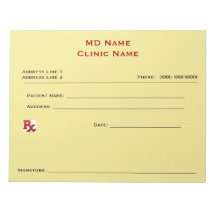
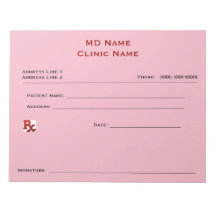
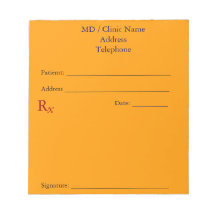
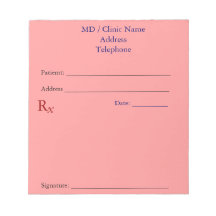
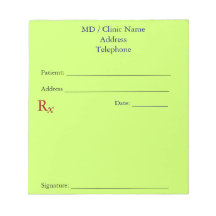
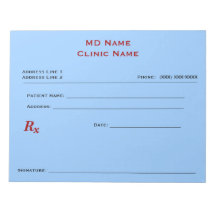
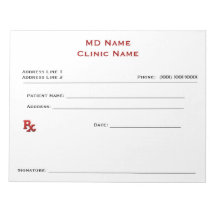
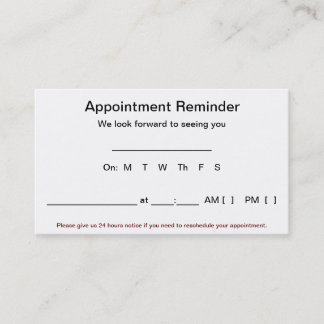
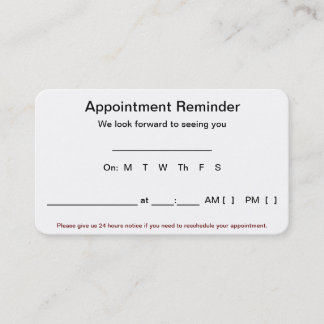
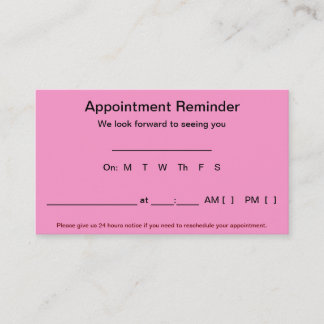
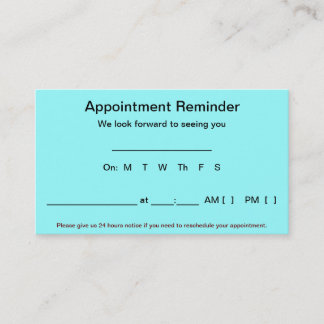
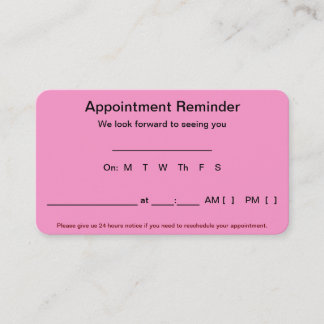
No comments:
Post a Comment